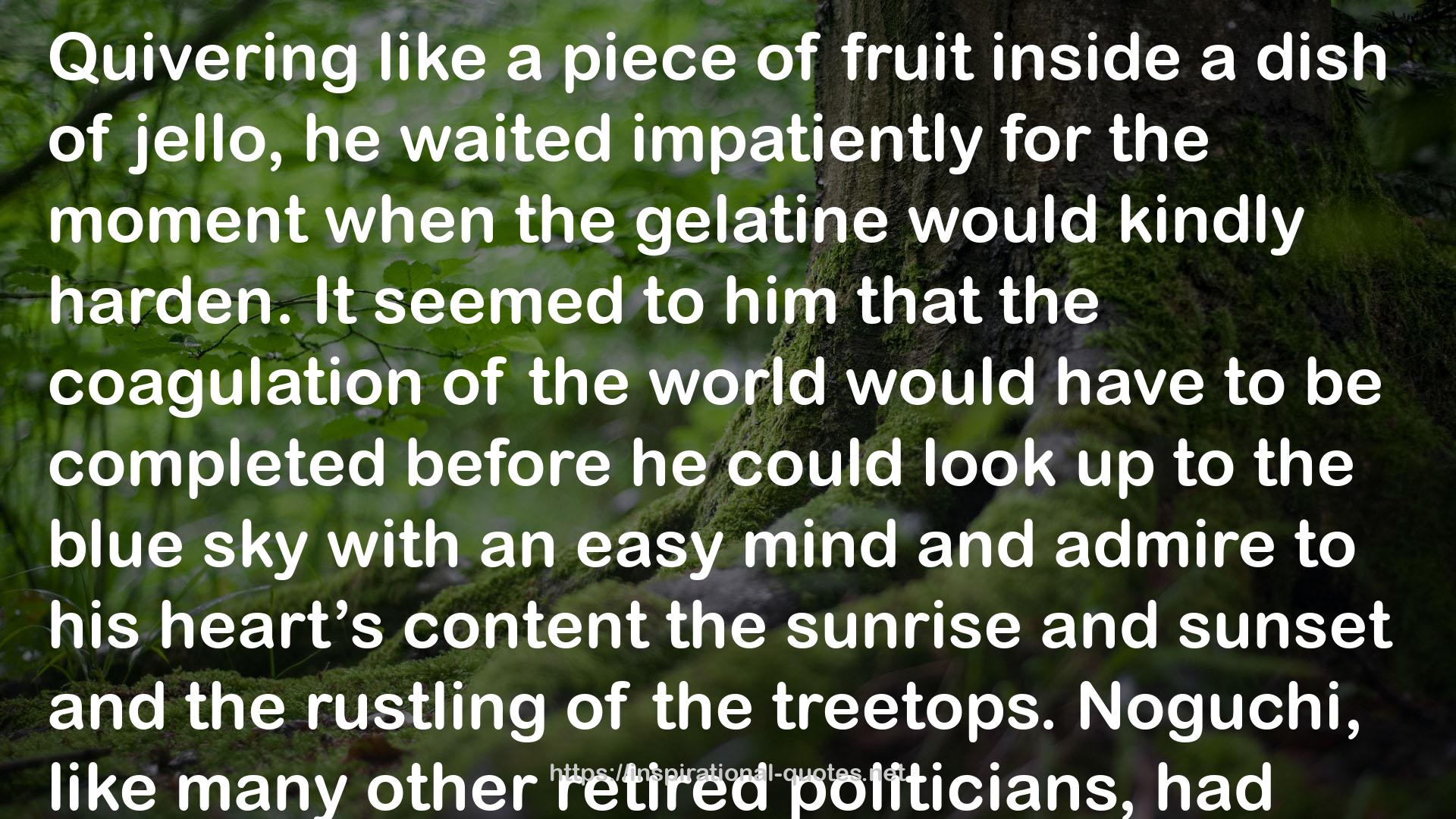" Quivering like a piece of fruit inside a dish of jello, he waited impatiently for the moment when the gelatine would kindly harden. It seemed to him that the coagulation of the world would have to be completed before he could look up to the blue sky with an easy mind and admire to his heart’s content the sunrise and sunset and the rustling of the treetops. Noguchi, like many other retired politicians, had wished to save “poetry” for his declining years. He had never had the leisure to appreciate that desiccated storage food, nor did he expect that it would taste good, but to such men as Noguchi, poetry lay hidden not in poetry itself so much as in an untroubled craving for poetry; poetry in fact symbolized the unshakable stability of the world. Poetry would make its appearance—indeed, would have to appear—when there was no further danger of the world changing, when one knew that there would be no further assaults of uncertainty, hopes, or ambitions. At such a time, he expected, the moral constraint of a lifetime and the armor of logic would melt and dissolve into poetry, like a column of white smoke rising in the autumn sky. "
― Yukio Mishima , After the Banquet
